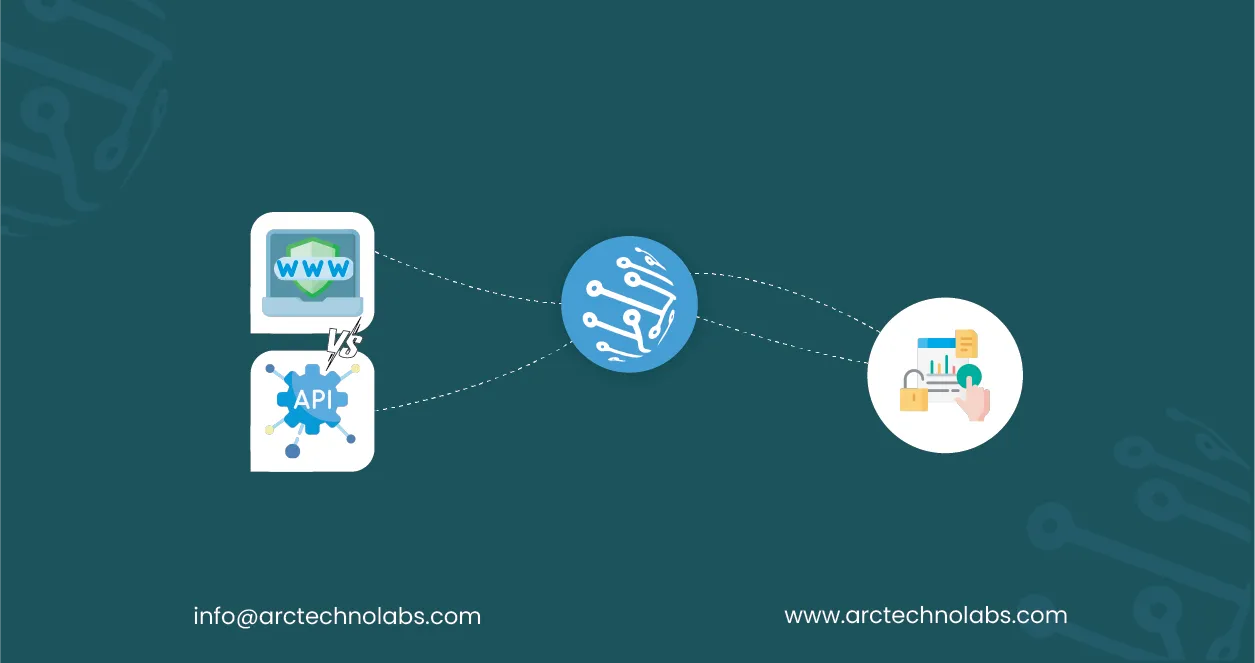
Introduction
In today's rapidly evolving digital world, businesses face the ever-growing challenge of accessing data from various online sources. Whether it’s for market intelligence, competitive analysis, or real-time price monitoring, businesses need an efficient way to gather and analyze data. This is where Web Scraping vs API in 2025 comes into play. Both web scraping and APIs offer distinct methods for accessing data, but understanding which one to choose can make all the difference. This blog explores how both solutions solve data accessibility issues for modern businesses, helping them make informed decisions.
Understanding the Basics: Web Scraping vs API
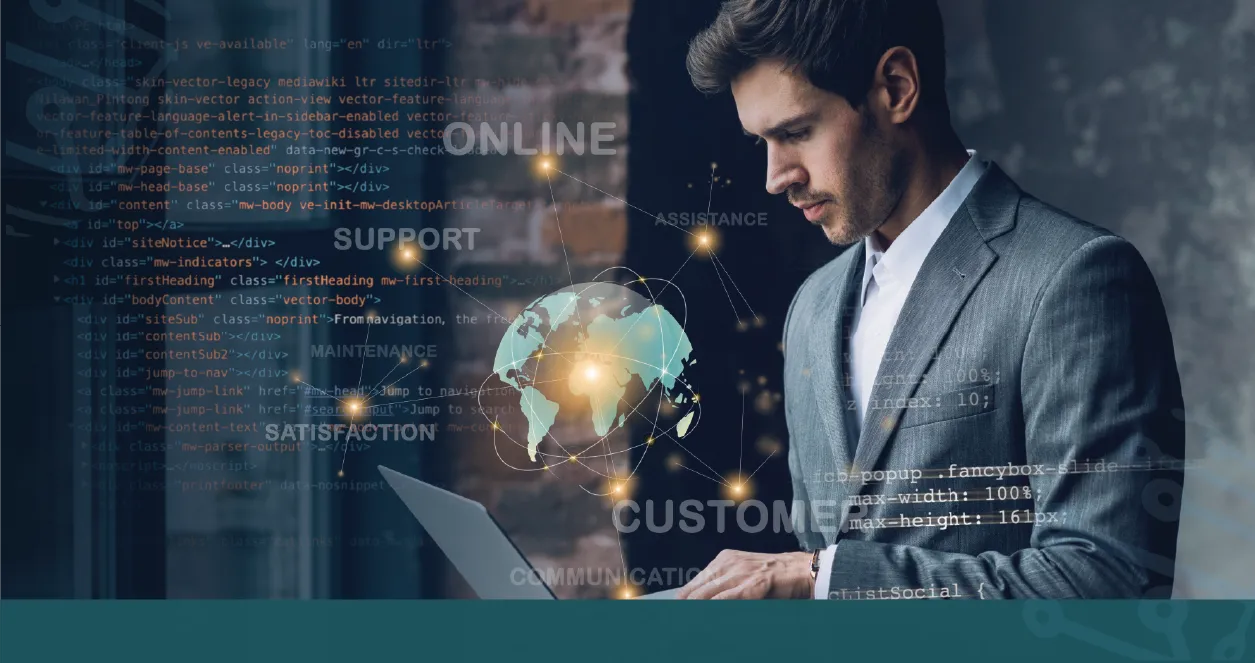
Before diving into the specifics of Web Scraping vs API in 2025, it's essential to define what each of these methods entails.
Web Scraping is a technique used to extract data from websites by mimicking human browsing behavior. It involves crawling through web pages, parsing HTML content, and extracting relevant data. Web scraping is often used when businesses need to collect unstructured data or when APIs are unavailable or limited.
APIs (Application Programming Interfaces), on the other hand, are sets of protocols that allow different software applications to communicate with each other. APIs provide a more structured way to access data directly from the source, often in real-time, and without the need for manual intervention. APIs are generally more reliable than web scraping because they are designed for data extraction, with clear documentation and predictable output.
The Growing Importance of Data Accessibility in 2025

In 2025, data accessibility has become a critical aspect of business strategy. Whether it's for market intelligence, consumer insights, competitive monitoring, or improving customer experience, businesses must gather and process data faster than ever before. Traditional data collection methods, such as surveys or manual research, are no longer sufficient. Businesses need automated, real-time access to vast amounts of information from a variety of online sources.
This is where Web Scraping vs API in 2025 presents two viable solutions. However, choosing the right one depends on several factors, including the type of data needed, speed, accuracy, and the resources available to manage the process.
Why Choose Web Scraping in 2025?
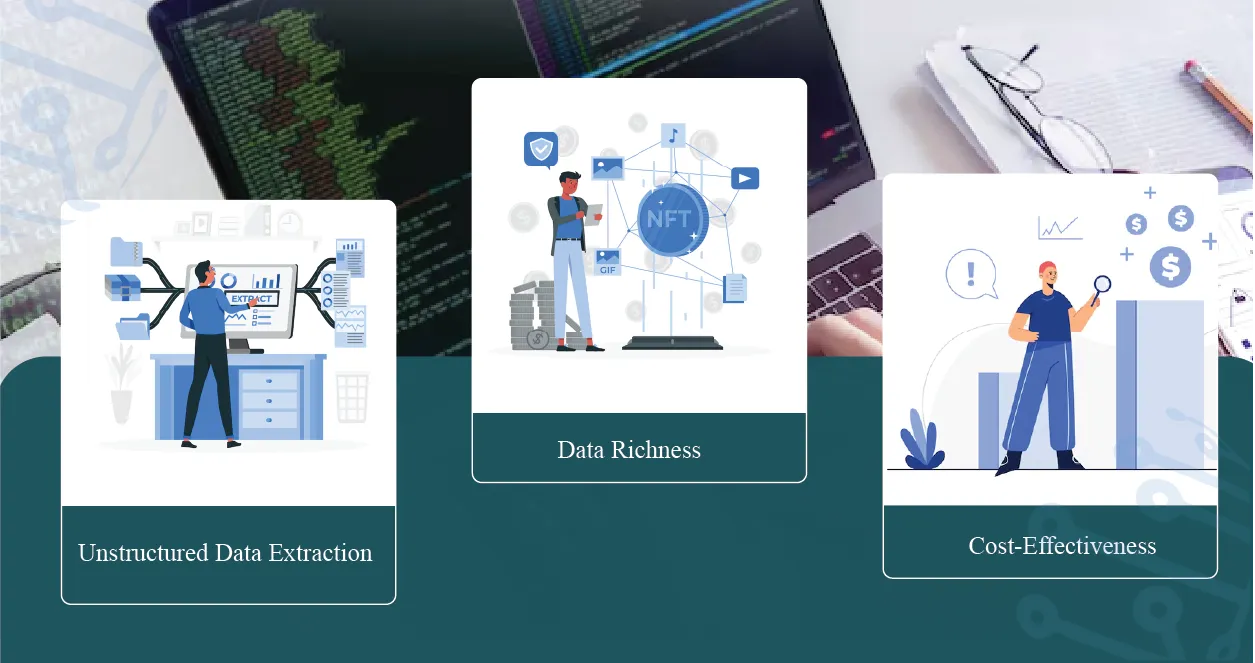
Web Scraping vs API in 2025 is often a decision between flexibility and structure. While APIs provide structured, well-organized data, web scraping offers flexibility by accessing almost any publicly available data on the internet.
1. Unstructured Data Extraction
Web scraping is an ideal solution when dealing with unstructured or semi-structured data. Many websites do not offer APIs, or the APIs they provide are limited to certain features or data types. For example, e-commerce websites might provide API access for product listings but may not offer data on reviews, user-generated content, or pricing changes over time. With web scraping, businesses can gather these data points by extracting content directly from HTML pages.
2. Data Richness
Web scraping can collect large volumes of data from various sources. With the ability to scrape multiple pages of a website, businesses can gather not just a single dataset but an entire data set, including historical data. This is particularly useful for market research or tracking competitor behavior over time.
3. Cost-Effectiveness
Unlike API services, which often require paid plans or subscriptions, web scraping can be a more affordable option, especially when scraping data from multiple sources. While there are some initial setup costs involved, businesses can extract large amounts of data without incurring ongoing fees.
Why Choose APIs in 2025?
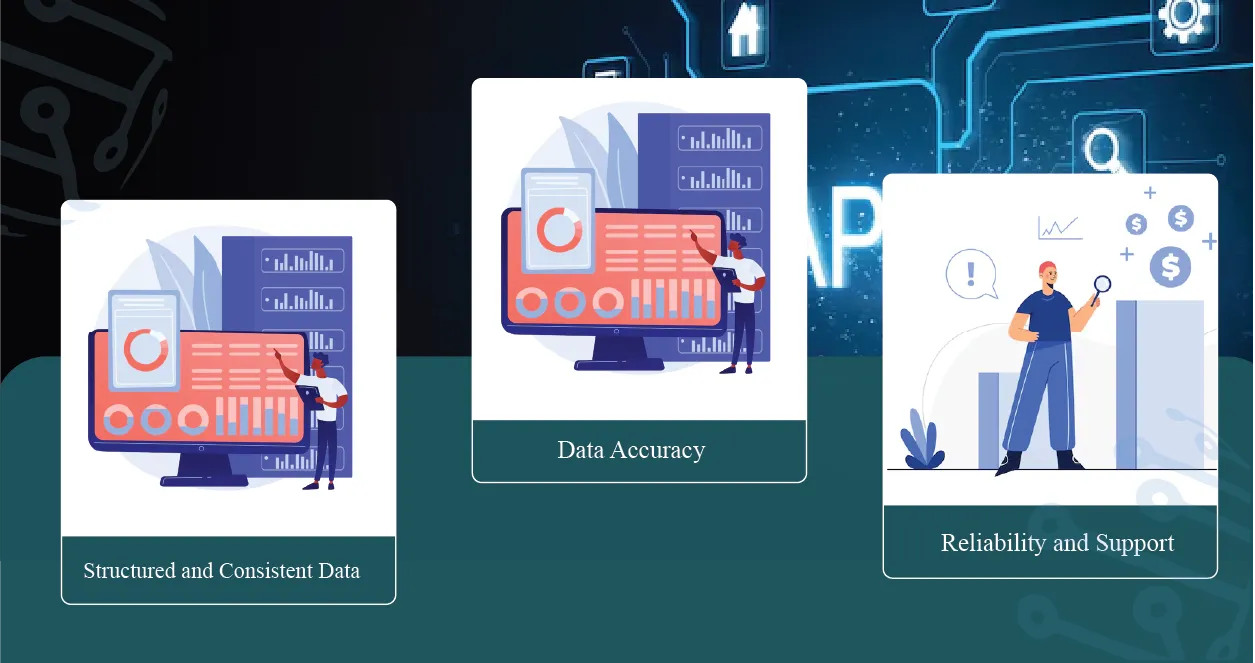
While web scraping offers flexibility, APIs excel in providing a more controlled and reliable data extraction method.
1. Structured and Consistent Data
APIs provide structured data, meaning the information is organized in a way that is easy to integrate with databases and applications. This structure ensures that the data is reliable and consistent, which is crucial for businesses that require high-quality, real-time data.
For example, APIs used for real-time data monitoring: scraping vs API can offer live data feeds that are updated in real-time. With APIs, businesses can rely on data that is consistently formatted, eliminating the need for cleaning or organizing raw data.
2. Data Accuracy
APIs are developed and maintained by data providers, ensuring the accuracy and validity of the information. Businesses can trust that the data provided through APIs is up-to-date and error-free, which is essential for tasks like price monitoring or inventory tracking.
3. Reliability and Support
APIs often come with robust documentation, error handling, and customer support. When an issue arises, businesses can reach out for technical assistance or troubleshooting, making APIs a more dependable choice compared to scraping, which may involve additional challenges such as CAPTCHAs or IP blocking.
Web Scraping vs API in 2025 - Use Cases in Modern Business
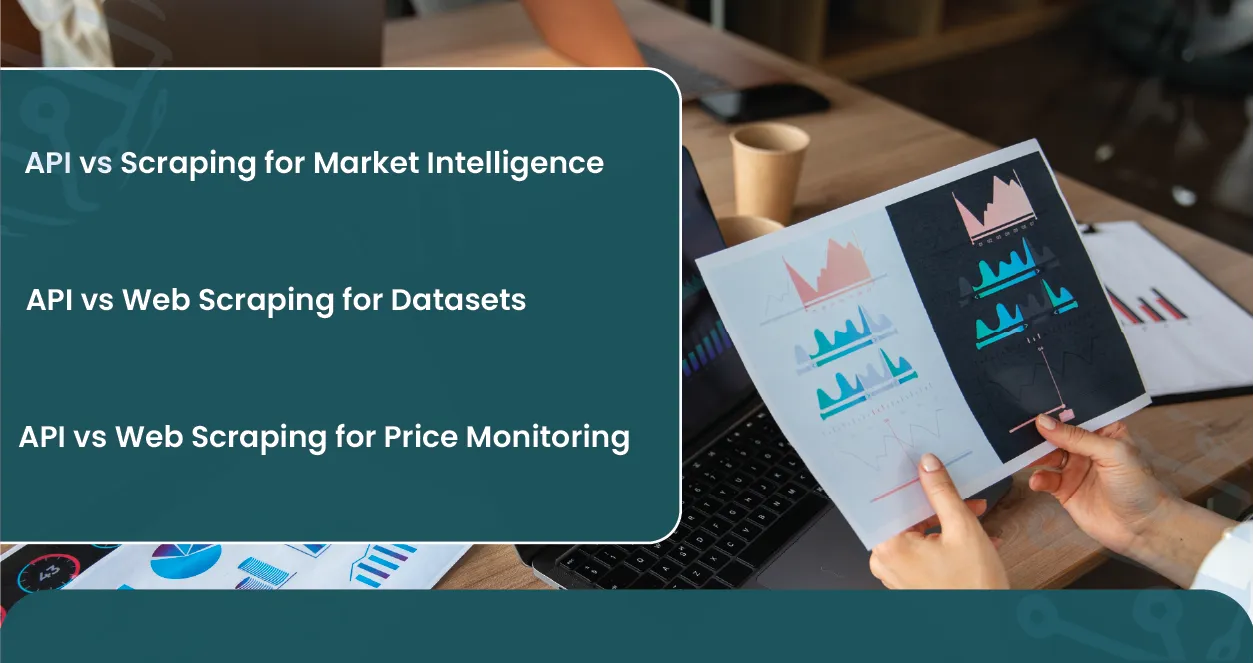
Both web scraping and APIs can solve data accessibility issues, but they each excel in different scenarios. Here are some use cases where these methods shine:
API vs Scraping for Market Intelligence
For businesses that require reliable and structured data from specific sources, APIs are the preferred choice. APIs from social media platforms, financial markets, and weather services can provide the necessary data in a consistent and structured format. For example, a financial service company may use APIs to pull real-time stock market data for analysis and reporting.
However, web scraping can complement this by gathering supplementary data, such as news articles, blogs, and competitor websites, which might not be accessible through APIs.
Web Scraping and APIs 2025: An Integrated Approach
In 2025, businesses will need to adopt a hybrid approach to data collection, using both web scraping and APIs. For instance, a company might use APIs for structured data and web scraping to collect additional insights from sources that don't offer APIs. This integrated approach helps businesses address gaps in data accessibility and ensures that they can leverage the full range of information available on the web.
API vs Web Scraping for Datasets
When businesses need large datasets with consistent formatting, APIs are often the go-to solution. However, API vs Web Scraping for Datasets shows that scraping is indispensable for gathering data from sites without APIs or where API access is limited or costly.
Web scraping allows businesses to pull data from multiple pages, like scraping product information across different categories of an e-commerce site or collecting reviews and ratings from various platforms.
Real-Time Data Monitoring: Scraping vs API
Real-time data monitoring requires speed and accuracy. APIs excel in this domain, offering real-time data feeds with minimal latency. For example, APIs can monitor pricing trends, stock market fluctuations, or social media sentiment in real-time.
However, Web Scraping Services can still be effective for monitoring competitor websites or aggregating data from multiple sources. With the right tools, businesses can scrape websites and aggregate information in real-time.
API vs Web Scraping for Price Monitoring
When it comes to price monitoring, both web scraping and APIs have their benefits. APIs often provide access to real-time pricing data from specific sources, ensuring accurate and up-to-date pricing information.
On the other hand, Web Scraping Services can be used to monitor competitor pricing across different online platforms, which may not have official APIs for accessing pricing data. Scraping allows businesses to track prices across a variety of websites and markets.
Why Choose ArcTechnolabs for Data Accessibility Solutions?
When it comes to Web Scraping vs API in 2025, ArcTechnolabs stands out as a trusted partner for businesses looking to overcome data accessibility challenges. We provide cutting-edge Web Scraping Services that allow businesses to extract data from any website, regardless of structure or complexity. Our Mobile App Scraping Services enable you to gather data from mobile apps, expanding your data collection capabilities.
Additionally, we offer Web Scraping API Services that integrate the best of both worlds, combining the power of scraping with the structure and reliability of APIs. Whether you need to collect market intelligence, monitor prices, or gather real-time data, ArcTechnolabs has the tools and expertise to deliver.
Conclusion
In conclusion, Web Scraping vs API in 2025 presents two robust methods for solving data accessibility issues. While APIs offer structured and reliable data access, web scraping provides unparalleled flexibility and access to unstructured data. The choice depends on your business needs, the type of data you require, and your ability to manage the data extraction process.
At ArcTechnolabs , we understand that the key to success in today's data-driven world is having the right tools and expertise. Our comprehensive data collection solutions, including Web Scraping Services, Mobile App Scraping Services, and Web Scraping API Services, are designed to meet your unique business requirements. Contact ArcTechnolabs today to learn more about how we can help you unlock the power of data in 2025 and beyond!







